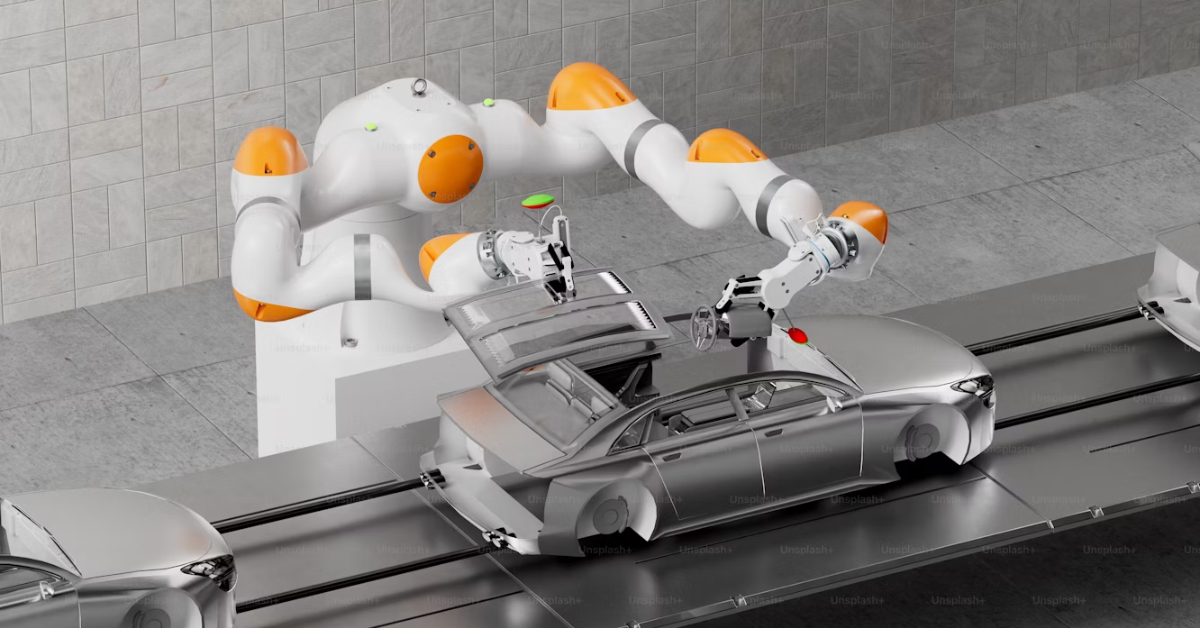The Essential Guide to Afruimwagens and Choosing Them

Introduction to Afruimwagens
When you first hear the term afruimwagens, you might be wondering what it actually means. The word comes from Dutch and literally translates to “clearing trolleys” or “clearing carts.” In practical terms, afruimwagens are the specialized carts used in the hospitality, food service, and cleaning industries to clear away plates, glasses, cutlery, or other items in an efficient and hygienic way. If you’ve ever been at a busy restaurant or hotel and seen staff moving dishes or trays around, chances are they were using some form of an afruimwagen.
These carts may sound simple, but they play a surprisingly big role in maintaining smooth workflows. Without them, waiters would spend twice as much time going back and forth from the dining area to the kitchen. Hotels and conference halls would struggle to keep events tidy. Even healthcare facilities benefit from them because they help in quickly collecting and transporting equipment or used trays from patient rooms. In other words, afruimwagens are the unsung heroes of logistics within service environments.
As the food and hospitality industry evolves, so does the design and functionality of these carts. Today, afruimwagens come in different shapes, sizes, and materials—each suited for a specific type of operation. Some are compact and lightweight, while others are robust and built for heavy-duty use. And while they may look like simple trolleys on wheels, they’re carefully designed to meet hygiene standards, safety regulations, and user-friendly requirements.
The Purpose and Importance of Afruimwagens
At first glance, it might seem that afruimwagens simply exist to move dirty dishes. While that’s certainly their most visible function, the importance of these carts goes far deeper. They contribute to efficiency, hygiene, and even customer satisfaction in subtle but powerful ways.
Efficiency is the first major factor. In a busy restaurant, servers can only carry so much at once. Without a cart, clearing even a medium-sized table would require multiple trips, wasting time that could otherwise be spent attending to new guests. By using afruimwagens, staff can clear tables faster, which means a quicker turnover of seating. For restaurants, that directly translates to higher revenue potential because they can serve more guests during peak hours.
Another critical aspect is hygiene. Afruimwagens are designed with smooth surfaces, often made of stainless steel or durable plastics, making them easy to sanitize. This is crucial because they handle used plates, leftover food, and dirty glasses. By keeping everything contained and easy to transport, these carts reduce the risk of contamination in food service areas. In places like hospitals, they also help ensure that used trays or medical instruments are moved hygienically and safely.
Finally, there’s the customer experience. Most diners probably don’t pay attention to whether a cart is being used—but they certainly notice when a table stays cluttered for too long. Quick clearing keeps the dining environment tidy, making it more pleasant for everyone. In that sense, afruimwagens help maintain the overall atmosphere and flow of a hospitality space, even if they’re working behind the scenes.
Types of Afruimwagens
Not all afruimwagens are created equal. Depending on the type of establishment and its specific needs, you’ll find a variety of cart designs on the market. Knowing the differences can make all the difference in choosing the right one for your business.
The most common type is the multi-tier trolley. These carts usually have two to four levels of shelving, allowing staff to stack plates, trays, or glasses neatly. They’re popular in restaurants, hotels, and conference centers because they maximize carrying capacity without being too bulky. Some even come with removable bins for cutlery or leftovers, which makes clearing even more efficient.
Another variation is the tray collection trolley. These are often used in cafeterias, school canteens, or self-service dining halls. Customers place their trays directly onto designated slots, and the cart can easily be rolled back into the kitchen. This type is all about convenience and speed, reducing the workload of staff by encouraging guests to participate in the clearing process.
Then there are specialized afruimwagens, designed for unique environments. For example, in healthcare, you’ll find carts specifically built to transport patient meal trays. In large-scale catering events, heavy-duty versions are designed to carry larger volumes without tipping or breaking down. Some modern carts are even fitted with noise-reduction wheels and shock absorbers, ensuring they can be moved quietly and smoothly across different floor types.
Materials and Design Considerations
The durability and usability of an afruimwagen largely depend on the materials it’s made of. The two most popular materials are stainless steel and high-grade plastic, each with its own advantages.
Stainless steel afruimwagens are the gold standard in professional kitchens and high-end hospitality venues. They’re strong, long-lasting, and resistant to corrosion. Their sleek metallic look also fits well in modern interiors. However, they’re generally heavier, which may not be ideal in spaces where carts need to be moved frequently over long distances.
Plastic afruimwagens, on the other hand, are lighter and often more affordable. They’re great for environments where mobility is key, such as school cafeterias or casual dining halls. Modern plastics are highly durable, resistant to scratches, and easy to clean. Some even come in attractive designs or colors, making them blend better with certain decors.
In addition to material, design considerations matter a lot. Features like ergonomic handles, lockable wheels, and noise-free casters may sound like small details, but they significantly impact day-to-day usability. Safety is also important—sharp edges or poorly balanced carts can pose risks to both staff and guests. For businesses, investing in a well-designed cart means fewer accidents, smoother workflows, and longer-lasting equipment.
Where Afruimwagens Are Used
Afruimwagens might be most commonly associated with restaurants, but their applications go much further. In fact, they’re used across industries that require efficiency in clearing, transporting, or organizing items.
In restaurants and hotels, their role is obvious. They’re used to clear tables, transport used plates to dishwashing areas, and deliver clean tableware back into service. In larger hotels, they also find a role in room service operations, where carts help transport meals or collect used trays discreetly.
In healthcare, afruimwagens are indispensable. Hospitals and nursing homes rely on them to distribute meals to patients and later collect trays efficiently. Because hygiene is a top priority, the carts used in healthcare are often designed to be extra easy to clean and sterilize.
In corporate and event settings, such as conference halls, afruimwagens help staff manage large crowds. Imagine a corporate lunch for 500 people—without carts, the logistics of clearing and cleaning would be a nightmare. They’re also common in schools, cafeterias, and even manufacturing plants, where they’re used to move tools, parts, or supplies. Their versatility makes them a staple in many industries beyond just hospitality.
Benefits of Using Afruimwagens
So, why should a business invest in good afruimwagens instead of sticking with manual clearing methods? The benefits are many, and they extend to both the staff and the customers.
The biggest benefit is efficiency. With a well-designed cart, a single staff member can do the work of several people in half the time. This not only reduces labor costs but also frees up staff to focus on customer service rather than just logistics.
Another benefit is ergonomics and safety. Carrying heavy trays repeatedly can lead to strain and injuries over time. By using afruimwagens, staff can avoid excessive bending, lifting, and carrying. This reduces workplace injuries and improves overall job satisfaction.
Finally, there’s the cost-effectiveness factor. While purchasing quality afruimwagens requires an upfront investment, they pay for themselves over time. Longer-lasting carts mean less frequent replacements, while the efficiency they bring translates to higher productivity and potentially more revenue. In short, they’re one of those tools that silently boost profitability behind the scenes.
Choosing the Right Afruimwagen
Selecting the right afruimwagen isn’t just about picking the cheapest option available. It requires considering the size of your operation, the type of environment, and the specific tasks you need the cart to handle.
For small restaurants or cafés, a compact multi-tier trolley is usually enough. These establishments don’t have the same volume as large hotels, so maneuverability is more important than maximum capacity. Choosing a lightweight plastic cart with quiet wheels can make clearing less disruptive in cozy spaces.
For large hotels, catering services, or hospitals, durability and capacity are top priorities. Stainless steel afruimwagens with multiple tiers or custom designs often make more sense here. Noise reduction wheels and strong handles are also important in these environments since staff will be using the carts for long shifts and across different floor types.
It’s also worth thinking about budget vs. long-term value. While plastic carts may seem cost-effective upfront, they may need replacing sooner in heavy-duty settings. Investing in quality from the start often saves money in the long run. Additionally, check for warranties, customer reviews, and supplier reliability before making a purchase.
Maintenance and Care Tips
Like any piece of equipment, afruimwagens require regular maintenance to stay in good working condition. Fortunately, they’re generally low-maintenance if you follow a few best practices.
First, cleaning is key. Since these carts often deal with dirty dishes and food waste, they should be sanitized daily. For stainless steel carts, use non-abrasive cleaners to maintain shine and prevent corrosion. For plastic carts, warm water and mild detergents usually do the trick.
Second, wheel care is often overlooked. The wheels, or casters, are the parts most prone to wear and tear. Regularly check them for dirt, grease buildup, or looseness. Replacing wheels when they start to squeak or jam will extend the life of the entire cart.
Lastly, storage and handling make a difference. Don’t overload the carts beyond their designed capacity, as this can cause bending or breakage. Store them in a dry area, especially if they’re made of metal, to prevent rust. With just a little attention, a good afruimwagen can last for years.
The Future of Afruimwagens
Like many other tools in the service industry, afruimwagens are evolving with technology. Manufacturers are exploring ways to integrate smart features and sustainable materials into their designs.
Some companies are already experimenting with automated clearing carts that follow staff around or navigate spaces on their own. These semi-robotic carts can reduce manual effort even further, especially in large-scale facilities like hotels or hospitals. While they’re still relatively new and expensive, they show where the industry might be heading.
Sustainability is another trend. With growing awareness of eco-friendly practices, more businesses are looking for carts made of recycled or sustainable materials. Manufacturers are also designing modular carts that can be easily repaired instead of replaced, reducing waste in the long run.
It’s safe to say that the humble afruimwagen isn’t going anywhere. In fact, as efficiency, hygiene, and sustainability become more important in service industries, these carts will likely become even more advanced and essential.
Conclusion
Afruimwagens may not be the flashiest piece of equipment in a restaurant, hotel, or hospital, but they’re absolutely vital. They bring efficiency, hygiene, and professionalism to service environments, making staff jobs easier and customer experiences better. From simple multi-tier trolleys to high-tech smart carts, they’ve come a long way from being “just a cart.”
Whether you’re running a small café, managing a hospital, or organizing a large event, choosing the right afruimwagen can make a world of difference. Investing in quality, maintaining them properly, and understanding their role in workflow will pay off in ways that go beyond just saving time. They’re one of those behind-the-scenes tools that keep everything running smoothly.



